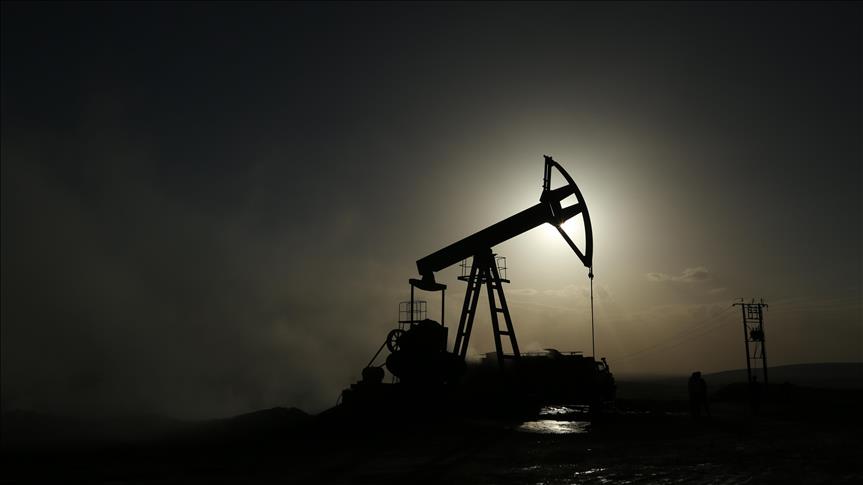
Juba
By Parach Mach
JUBA, South Sudan
South Sudan has laid plans to repair oil facilities damaged by two years of civil war to restore output to its original level and to support production from the only region pumping crude, the Paloch fields in the upper Nile state.
Oil output from the young nation, which has sub-Saharan Africa’s third-largest reserves, is now 130,000 barrels per day, less than a quarter of the 300,000 barrels per day the nation pumped before the civil war broke out in December 2013 when president Kiir accused his deputy Riek Machar of mounting a coup against his regime.
The ministry hopes to ramp up production swiftly with the backing of the new transitional unity government which was formed at the end of April.
Minister of Petroleum Dak Duop Bichok said that substantial damage was incurred to oil facilities at the Tharjath Oil bloc 5 and in the Unity fields during the war. He added that repairs to rectify the damage at the oil fields could take years and will delay the restart of the fields that are linked to them.
“Oil Companies DPOC [Dar Petroleum Operating Company] and GPOC [Greater Petroleum Operating Company] have agreed to repair oil field facilities in Tharjath and Unity State so that we can resume the previous production of 300,000 per barrel,” Bichok told Anadolu Agency.
Oil recovery could take eight months to a year because of shutdowns, he added.
"All those plans depend on peace implementation and security. If proper and robust security at the oil facilities is not in place, then our plans will be in danger,” Bichok said.
The ministry held a meeting with oil companies, DPOC AND GPOC, to discuss the resumption of production. However, the oil companies raised two major issues; security on the ground and the predicament with their contracts.
“They said their five-year contracts will end this year, so they see no need to put money into the project which they will not get back. They also demanded compensation for expenses they incurred when South Sudan shut down oil production in 2012 although we rejected this demand; we explained the crisis the country is in,” he said.
Conflict in the world’s newest country cut oil output by a third to about 130,000 barrels per day. The country is currently only pumping oil in the upper Nile state after Unity production stalled in 2014.
Before the war, China National Petroleum Corp., Malaysia’s Petroliam National Bhd. and India’s Oil & Natural Gas Corp. produced most of the oil.
The violence left tens of thousands of people dead and two million displaced. Prior to elections, which are due to be held within 30 months, a transitional government was formed at the end of April to improve economic management, boost security, reduce corruption and stamp out human-rights abuses.
The government is almost bankrupt due to sliding crude revenue, while inflation in the capital, Juba, is raging at more than 240 percent. The economy shrank 5.3 percent last year and millions of people face starvation. If the state cannot find the cash to pay the thousands of government soldiers and rebel fighters, violence could flare again.
“In Paloch, 120,000 to 130,000 barrels per day is produced and we are planning now to increase the production and resolve the challenges facing the oil fields,” he added.
“We agreed this with DPOC, and in July they will increase production. We told them to repair oil fields within four to six months so that we resume the work; but they proposed eight months to a year," he said.
South Sudan rebels and government forces hit Tharjat and Unity oil fields early 2014, forcing China National Petroleum Corp., Malaysia’s Petroliam National Bhd. [Petronas] and India’s Oil & Natural Gas Corp. to declare a force-majeure on the fields, and further attacks have ensued since then.
South Sudan's unity government formation in April raised hopes that the young nation could restart the idle fields and renew exports to its northern neighbor, Sudan.
South Sudan pays Khartoum up to $25 per barrel for its crude oil transported through the Sudanese territory.
In January 2016, Juba requested that the Sudanese Petroleum and Mining Ministry reconsider the transit fees in the wake of the fall in global oil prices.
"South Sudan will go and negotiate with Khartoum. Khartoum said they are ready to reach a consensus with the Juba government to reduce charges from $25 per barrel pay for the usage of its pipeline. We proposed to pay $12 per barrel to Khartoum,” he said.
The government is still struggling to gain clear support, especially in the West.
The price of crude oil has recently rebounded and is currently trading around the $50 per barrel mark in international markets.
Anadolu Agency website contains only a portion of the news stories offered to subscribers in the AA News Broadcasting System (HAS), and in summarized form. Please contact us for subscription options.




